How to Select Tent Stakes Like a Pro

'No tent is any stronger than the stakes that hold it down - especially in strong winds. But sometimes the ground is too hard for them, like at this…'
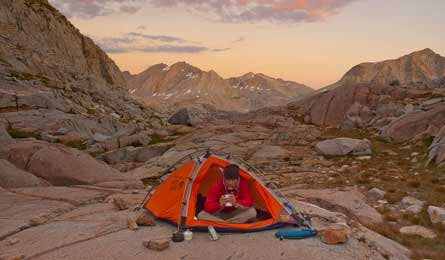
No tent is any stronger than the stakes that hold it down – especially in strong winds. But sometimes the ground is too hard for them, like at this solid-rock campsite in Utah.
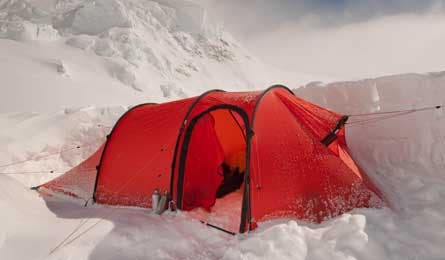
Sometimes the ground surface is too soft to allow you to easily tie-down a tent. Even an expedition tent is vulnerable if it’s not properly secured. Using the right stakes and techniques in these conditions is important.
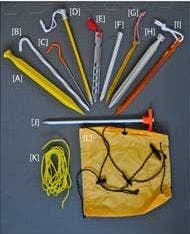
Guying your tent effectively starts with choosing the right anchors for the ground you’ll pitch on. Several common stake and anchor types are shown here.
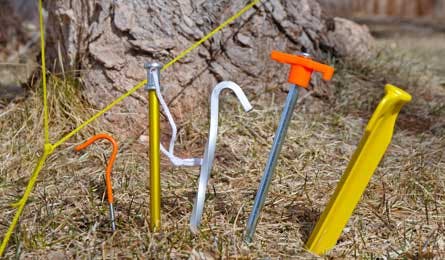
Grass and soft soil are the easiest staking grounds. Most any stakes will work, even light pegs. For big tarps and high winds, choose long, heavy, stakes like the two on the right. Don’t forget to utilize anchors like nearby tree trunks (left).
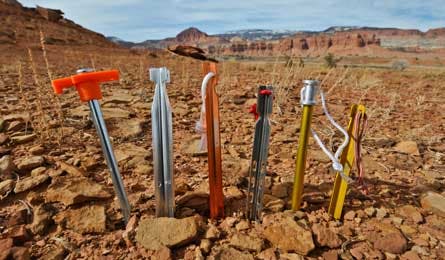
Desert hardpan and gravel can be tough, because in spots the ground may be loose, but it may also also contains rocks and slabs that can destroy stakes. Use strong-shafted stakes with sharp tips, and straight-topped designs you can pound without bending.
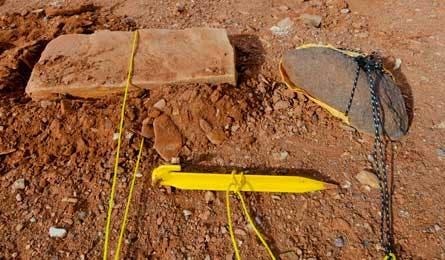
Desert wash and sand offer soft camping, unless it’s windy. Then, staking for stability can be tough. Use ‘deadman’ style anchors like large rocks, thick tent stakes clove-hitched around their centers, or snow/sand ‘bag’ anchors.
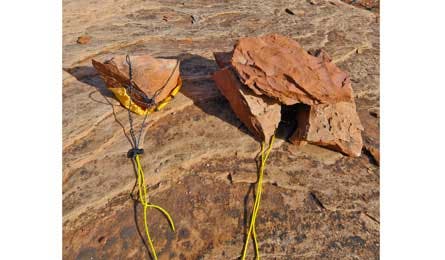
Slickrock, slabs, and even frozen ground can provide clean camping–bring a cushy sleeping pad! But in serious wind, it’s almost impossible to securely pitch a tent. The best strategy for added strength: pile on the heavy rocks. As many as 30 – 40 lbs.
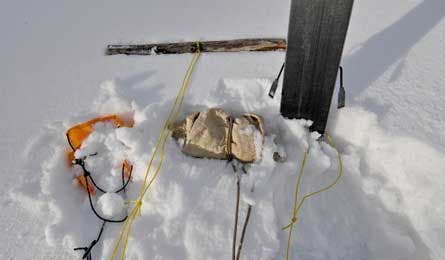
Anchoring in deep snow requires extra effort. Use deadman anchors like pre-manufactured snow/sand ‘baskets, rolled stuff bags, thick sticks, or even ski tails planted in the snow. Avoid metal stakes, even broad ones, because they melt out.
Photos & Text: Steve Howe